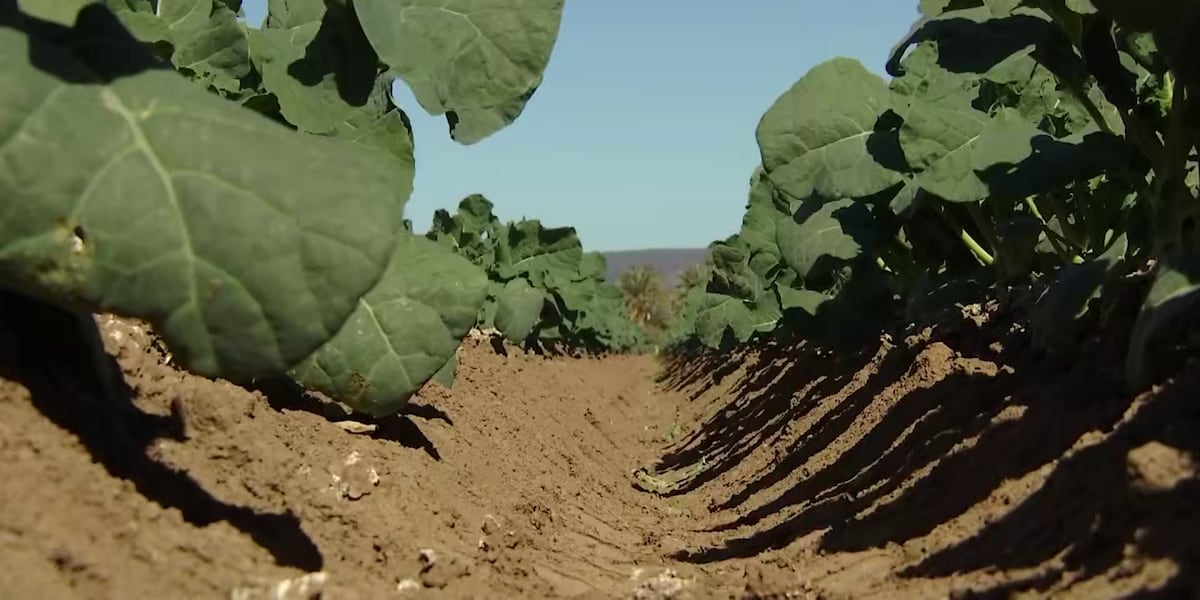YUMA, AZ (AZFamily) — Arizona’s agriculture sustains the nation’s food supply and massively supports the state’s economic growth, according to a new study by the University of Arizona’s Agriculture Cooperative Extension.
The report shows the agriculture industry contributed $30.9 billion in economic activity in the state. It showcases a 32% increase from the last study conducted in 2017 through the USDA’s agriculture census, which takes place every five years.
According to Professor George Frisvold, who worked on the study, inflation is a contributor to the increase, but he said subtle growth in the industry across the state has also moved the needle.
Frisvold said one of the most significant increases they saw was in agriculture trade with Mexico, which he said has helped create jobs in Southern Arizona.
“There’s all this produce coming up from Mexico and into Nogales, and that agriculture trade is the largest private sector employer in Nogales,” said Frisvold. “It’s another source of winter vegetables and employment in the state. Nogales and Santa Cruz County is a big hub for wholesale and shipping.”
The industry employs 160,000 workers across the state. The top agribusinesses are wholesaling, vegetable and melon farming, agriculture support services, bread and bakery products, and fluid milk manufacturing.
The data also shows Arizona’s agricultural economy is still growing.
“There are different pockets in the state, different areas that are making different important contributions. These are success stories. Yuma is a success story, Nogales is a success story, the growth in wineries, there’s a growth in tribal vegetable production. These are success stories.”
Frisvold said that while overall conditions are good, there are also agricultural challenges, one of which is water availability.
“There’s challenges in the center of the state. How do people adapt to cuts of Colorado River water,” said Frisvold.
Another major challenge is labor availability.
“The reason Arizona is so productive is because you got a labor supply. People focus ‘on, oh you got people coming across the border, this is bad, this is a cost,’ but in Yuma you see the economic benefit, so there is this question of is that labor going to get disrupted,” he said.
Frisvold said these challenges won’t go away, but Arizona has been able to weather them.
See a spelling or grammatical error in our story? Please click here to report it.
Do you have a photo or video of a breaking news story? Send it to us here with a brief description.
Copyright 2024 KTVK/KPHO. All rights reserved.
